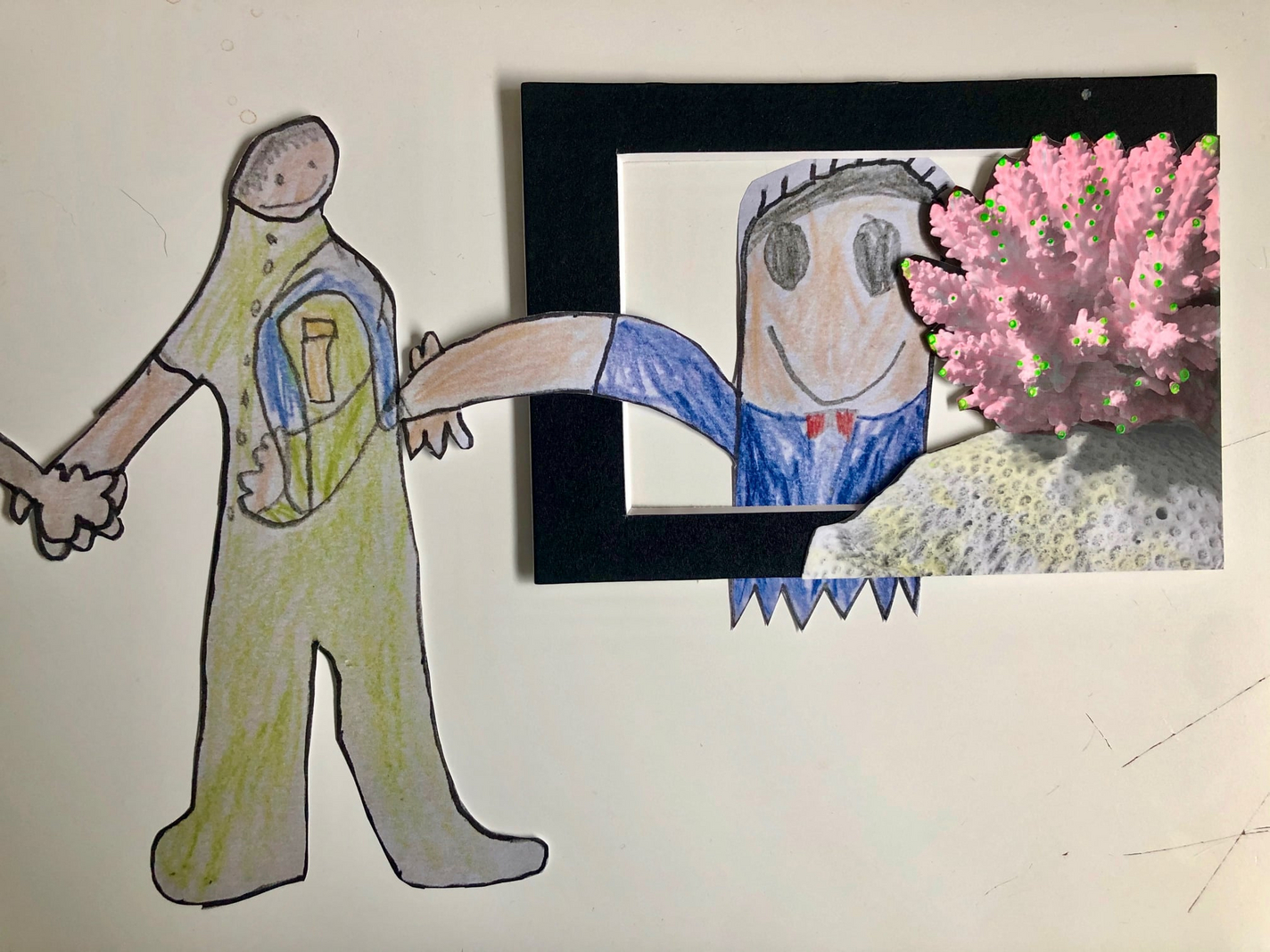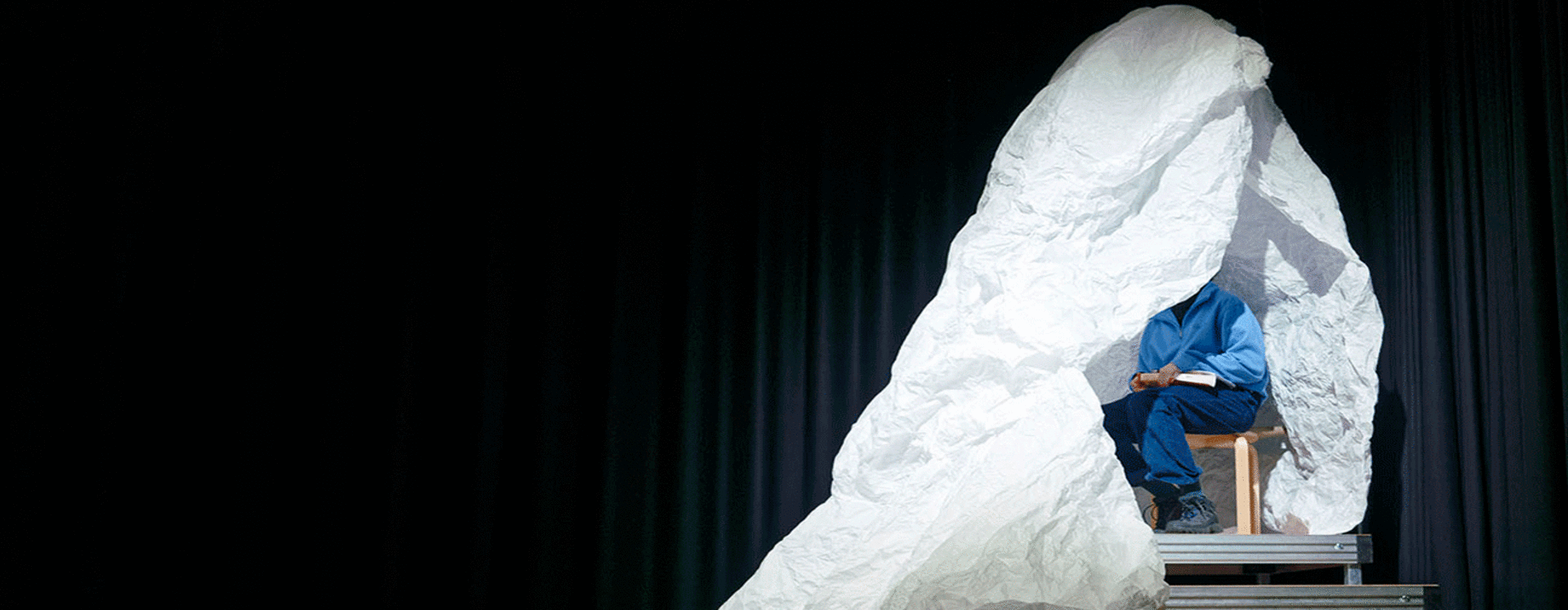Care, Wellbeing, Grief & Loss
Grief expressed out loud, whether in or out of character, unchoreographed and honest, for someone we have lost, or a country or home we have lost, is in itself the greatest praise we could ever give them. Grief is praise, because it is the natural way love honours what it misses.
Martin Prechtel

Bestiary (2021), Laura Cull Ó Maoilearca and Eoin Ó Maoilearca.
Both the global pandemic and the acceleration of climate crisis have forced growing numbers to face incalculable loss. Artists and creative producers are part of a wider movement to rethink our differing cultural relationships to death & dying and to grief & loss – foregrounding the importance of care as a value and set of embodied practices. In some cultural contexts, stigma is attached to grief and there is a lack of open space and time to explore our relationship to death and dying. At the same time, there is a need to consider how the arts relate to what some call the “crisis of care” produced by contemporary capitalism and magnified by COVID-19.
In these contexts, grief can relate to a wide variety of experiences not only to the death of a loved one, but to loss in relation to displacement and migration, social injustice and ecological crisis. For many contemporary artists and thinkers, grief is not a problem to be solved or a linear process that we can be done with, but something we can learn to live alongside and that teaches us new ways of being in the world. Research in and through the arts explores both transcultural death traditions and what new kinds of rituals and ceremonies might be needed to grieve, or to meet death and loss in contemporary contexts. Foregrounding the need to for collective as well as individual grief and mourning practices, researchers experiment with a wide range of approaches – including trance, touch, channelling, lament, somacoustics, meditation, and through image, dream and object-based work.
At the ATD Lectorate, we are interested in how these themes intersect with the others: the relationship between personal loss and ecological loss; between human death and species extinction; grief as a source of learning and unlearning; nonhuman care and grief; care and sustainability; and care and social in/justice, particularly in the context of disability justice.
– What can the arts contribute to how we relate to death and dying?
– How can we live with the dead?
– What kind of rituals and ceremonies do we need to grieve or to meet death and loss?
– How are grief and loss lived in the [performing] body?
– Can performance be a form of grief work and care work?
– How can art relate to individual and collective grief?
– How is care performed?
– How can performance embody and enact an ethos of care?
– What insights might the arts offer to grief work, end-of-life care and death practices, and vice versa?
Work in this theme might involve a wide range of practices and topics, including but not limited to:
- Memory, remembering, memorial practices in the arts: forms of mourning, lament and commemoration
- Care, grief and loss as embodied knowledge; ways of knowing and not-knowing
- Creative approaches to grief, the role of the arts in relation to grief and loss, end-of-life care and death practices
- Relationships between the living and the dead; the undead and the non-living; materiality and spirituality
- Rethinking lived time, temporality and duration: beyond linear and singular conceptions of past, present & future; what experiences of grief and loss teach us about the nature of lived time
- Role of ritual, ceremony, healing & facilitation practices in the arts
- Ecological grief and care; mourning species, habitats, ecosystems.
- Grief responsibility, accountability
- Grief and loss as collective matters of concern, collective practices
- Performance as care / care as performance: performance as a practice of care; care as embodied and affective practice
- Care and/as attention, responsibility, relationality, interdependence, empathy, reciprocity
- Arts research with care workers: social care, healthcare workers, end-of-life carers
- Ethics and politics of care; power dynamics in care/cared for; care in the context of social inequalities and categories of gender, class, race, disability; self-care and collective care; care in relation to ‘burn-out’
- Care networks
